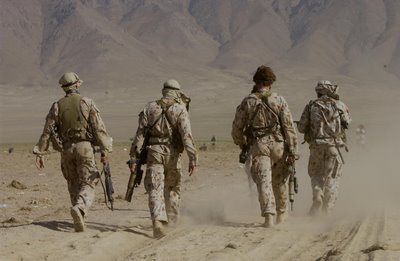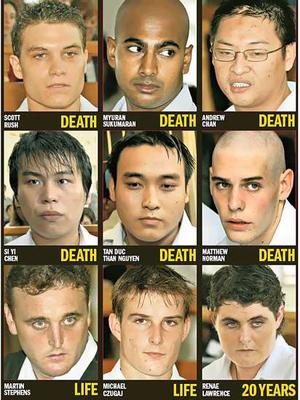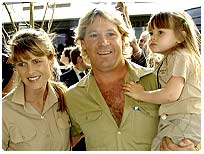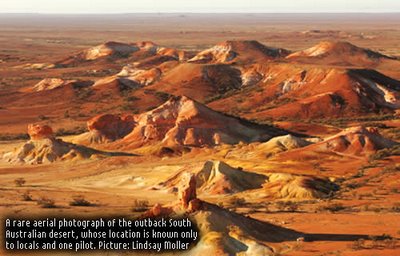AUSTRALIAN SPY AGENCY WARNS THEY CANNOT STOP TERRORISTS FROM ATTACKING
ASIO SAYS AL QAEDA INSPIRATION, NOT GROUND TROOPS IN TERROR WAR
The chief Australian spy agency, ASIO, has recruited a record number of new agents and operatives through 2005-2006. Some 247 new staff have joined the more than 1000 Australians already working for the agency.
The ASIO annual report for 2005-2006 claimed that Indonesian terror groups were gaining in strength, that the threat of terrorist attacks in Australia had increased, partly due to the blowback from the extreme violence of the 'War On Iraq' and that while Osama Bin Laden remained a source of inspiration for jihadists worldwide, the much-hyped Al Qeada 'network' is actually nothing of the sort, instead being a chief source of inspiration and motivation, but not a grand co-ordinator of jihabist attacks.
From the Sydney Morning Herald :
Spy agency the Australian Security Intelligence Agency (ASIO) has warned the war in Iraq has raised tensions within Australia's Middle Eastern community.
The intelligence organisation has also continued to warn of the danger terrorism poses, cautioning that Jemaah Islamiah (JI) remains a serious threat to Australian interests here and overseas.
"The ongoing violence in Iraq continues to have an impact on the Middle East community in Australia," ASIO says in its annual report to parliament.
"During 2005, in the lead-up to the elections in Iraq, tensions increased between members of the Sunni and Shia communities in Sydney, particularly in the Auburn area."
The agency said individuals in Australia continued to adhere to an extreme interpretation of Islam that advocated violence.
"Some of these are Australian-born and others have lived here for most of their lives. Some are associated with extremist groups and terrorist identities overseas and some have trained with terrorist groups in other countries," the report said.
The spy group said the radicalisation of some individuals had been a very short process, making it hard for authorities to detect them.
From news.com.au :
Australia's chief intelligence agency ASIO says global bogey man Osama bin Laden now inspires others to act rather than doing so itself.
"Al-Qaeda's current ability to undertake operations itself outside certain restricted areas is reduced," ASIO says in its annual report. "It's primary role now consists of inspiring or encouraging others to engage in terrorist acts or to view their local insurgencies on nationalistic or ethnic issues in global strategic terms."
ASIO says in global terms, terrorists are relatively disorganised with links based on shared experiences and personal connections.
But the lack of a central, definable organisation makes it harder for intelligence organisations to snare a terrorist.
Both the Madrid bombings of March 2004 and the London bombings of July 2005 were conducted by largely self-sufficient groups with low security profiles.
"Jihad doctrine asserts the individual duty of Muslims to undertake Jihad in any country in which it is possible to do so," the ASIO report says.
From The Australian :
The annual report from the country's chief spy agency says the terror group Jemaah Islamiah remains a serious threat to Australian interests and continues to foment violent jihad in parts of Indonesia.
ASIO says it is now clear that Islamic extremists see Australian interests around the world and Australia itself as targets for terrorist attacks.
In its review of the global terrorist threat, ASIO concluded that al-Qa'ida had a reduced ability to undertake terrorist operations, with its primary role now largely inspirational.
In the past year, attacks had occurred in London, Mumbai in India, Sharm el-Sheikh and Dahab in Egypt, Iraq, Tel Aviv in Israel, Sri Lanka, southern Thailand and Turkey. Other planned targets included Britain, Germany, Denmark, Canada and Australia.
Mr O'Sullivan said anticipating a "dynamic and increasingly complex" global threat would require imagination and novel approaches
Former ASIO Boss Backs US Intelligence




